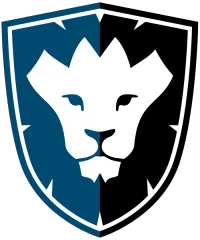
Safeguarding the Solitary: Enhancing Oil & Gas Worker Safety with Basin Safety Consulting’s Lone Worker Monitoring Solutions
In the oil and gas industry, workers frequently find themselves in isolated locations, exposed to hazards without the immediate aid of supervisors or colleagues. These lone workers, often performing crucial tasks like equipment maintenance or inspections, are at heightened risk due to the nature of their work environment. Whether dealing with hazardous gases, dangerous machinery, or extreme weather conditions, the stakes are high when there’s no one nearby to lend immediate assistance.
That’s why lone worker monitoring has become an indispensable part of modern safety protocols in oil and gas operations. By integrating real-time tracking systems, cloud-based technology, and personal emergency response tools, companies can keep an eye on their most vulnerable workers—even from a distance. Basin Safety Consulting is at the forefront of this effort, providing industry-leading training and safety solutions that ensure lone workers remain protected, regardless of where their duties take them.
In this blog, we’ll explore the challenges lone workers face in the oil and gas industry and how modern monitoring systems and comprehensive safety training from Basin Safety Consulting are crucial for keeping them safe.
The Critical Role of Lone Workers in the Oil & Gas Industry
Lone workers are essential to many critical operations in the oil and gas sector. Whether they’re conducting site inspections, operating heavy machinery, or performing routine maintenance in remote areas, these workers keep operations running smoothly. However, the very nature of their work presents inherent risks. When something goes wrong, their isolation can turn a manageable problem into a life-threatening situation.
This is especially true for workers in high-risk environments where exposure to hazardous gases like hydrogen sulfide (H2S) or confined spaces is common. In these scenarios, quick response times are essential to prevent injuries or fatalities. Unfortunately, without proper monitoring systems, it can take too long for help to arrive.
Lone worker monitoring systems are designed to bridge this gap by providing real-time data on a worker’s location, health, and environmental conditions. These systems ensure that even when a worker is physically alone, they are never truly isolated.
Technological Advancements in Lone Worker Monitoring
The development of new technologies has revolutionized the way companies in the oil and gas sector manage the safety of their lone workers. Here are some of the latest advancements that have been integrated into modern monitoring systems:
1. GPS Tracking and Cloud Connectivity
GPS-enabled devices allow supervisors to monitor a worker’s location in real-time, ensuring that help can be dispatched immediately in the event of an emergency. These systems often use cloud-based platforms, which allow for continuous communication and monitoring even in remote areas with limited connectivity.
By providing real-time updates on a worker’s position, cloud-based monitoring systems not only improve emergency response times but also help supervisors ensure that workers are following safety protocols.
2. AI-Driven Risk Detection
Artificial intelligence (AI) plays a pivotal role in identifying risks before they escalate into emergencies. AI systems can analyze worker behavior and environmental data to detect signs of fatigue, improper use of equipment, or exposure to dangerous substances. When AI detects an anomaly, it can send immediate alerts to both the worker and their supervisor, reducing the likelihood of accidents.
AI is particularly useful in situations where workers may be exposed to harmful gases or are operating in confined spaces. By continuously analyzing data in real-time, AI systems provide an added layer of safety for lone workers.
3. Drones for Site Inspections
In many cases, sending a worker into a hazardous area isn’t necessary, thanks to the use of drones. Drones equipped with cameras and sensors can be deployed to inspect high-risk areas like elevated pipelines or offshore oil rigs. By reducing the need for workers to physically enter these dangerous environments, drones minimize the risk of injury.
Drones also provide detailed visual data that can be used to assess potential hazards before workers are sent to the site, further enhancing safety.
4. Personal Emergency Response Systems (PERS)
Personal Emergency Response Systems (PERS) are wearable devices that allow workers to call for help at the push of a button. In addition to manual alerts, many PERS devices are equipped with fall detection, gas exposure monitoring, and real-time health tracking, making them a vital tool for lone workers.
By incorporating PERS into their safety protocols, companies can ensure that lone workers have immediate access to emergency assistance when needed. These devices are particularly useful in situations where a worker may be incapacitated and unable to call for help on their own.
5. Virtual Reality (VR) for Training
Virtual reality has become an invaluable tool for preparing workers for high-risk environments. VR allows workers to experience lifelike simulations of hazardous situations, such as gas leaks or equipment malfunctions, without being exposed to actual danger. This type of training not only builds confidence but also helps workers develop the reflexes needed to respond quickly in real-world emergencies.
At Basin Safety Consulting, we offer VR training programs that simulate the specific challenges faced by workers in the oil and gas industry. This immersive training ensures that workers are fully prepared for the risks they may encounter in the field.
Basin Safety Consulting: Your Trusted Partner for Lone Worker Safety
As the oil and gas industry continues to evolve, so too must the safety protocols that protect its workers. At Basin Safety Consulting, we are dedicated to providing the highest level of safety training and support to ensure that lone workers are never left vulnerable.
Our comprehensive training programs focus on equipping workers and supervisors with the knowledge and tools they need to operate safely in high-risk environments. By combining cutting-edge technology with practical, hands-on training, we ensure that every worker is prepared for whatever challenges they may face.
Here’s how we set ourselves apart:
1. Expert-Led Training
Our instructors bring years of experience in the oil and gas industry, offering real-world insights into the risks and challenges that workers face. From confined space safety to gas detection protocols, our training covers all the critical areas needed to protect lone workers.
2. Customized Solutions
Every operation is different, and so are the risks. We work closely with our clients to develop customized safety solutions that address the specific needs of their worksites. Whether you’re operating an offshore rig or a remote pipeline, we create a tailored safety plan that works for you.
3. Integration of Advanced Technologies
We don’t just teach safety protocols—we incorporate the latest technologies into our training programs to ensure that workers are comfortable using the tools that will keep them safe. From wearable devices to AI monitoring systems, we make sure that your team is fully equipped for success.
4. Ongoing Support
Safety doesn’t stop when the training session ends. At Basin Safety Consulting, we provide ongoing support to ensure that your safety program remains effective. Whether it’s answering questions, troubleshooting issues, or offering refresher courses, we are committed to keeping your team safe.
Why Lone Worker Monitoring is Essential for Regulatory Compliance
In addition to protecting workers, lone worker monitoring systems are essential for meeting regulatory requirements. The oil and gas industry is heavily regulated, with agencies like OSHA requiring companies to ensure that workers in remote or hazardous environments are adequately protected.
By implementing robust monitoring systems and providing comprehensive training, companies can not only protect their workers but also avoid costly fines and penalties for non-compliance. Basin Safety Consulting helps companies navigate these regulations, ensuring that their safety programs meet or exceed industry standards.
Lone worker safety is a critical issue in the oil and gas industry, where workers are often exposed to hazardous environments without the immediate aid of colleagues or supervisors. The integration of advanced monitoring systems, real-time tracking, and comprehensive training has transformed how companies protect their lone workers.
At Basin Safety Consulting, we are committed to leading the way in safety training, providing workers with the tools, knowledge, and support they need to stay safe on the job. From cutting-edge technologies like VR and AI to hands-on instruction from industry experts, we offer everything you need to ensure the safety of your team.
Ready to improve your lone worker safety program? Contact Basin Safety Consulting today to learn more about our training and safety solutions.
Contact Us
(701) 572-8140
www.basinsafetyus.com
Archives
Categories
Benzene Testing
Bloodborne Pathogens
Breathing Air Systems
Certification Process
Confined Space Attendants
Confined Spaces
Construction Equipment Operators
Electrical
Environmental Compliance
Excavation and Trenching
Fire Extinguisher Training
Forklift Operator
Hazcom Workplace Safety
HAZWOPER
Hearing Protection Training
Heavy Equipment
Hydrogen Sulfide
Lone Worker
Lone Worker Solutions App
Monitoring
Oil and Gas
Oil Drilling
Online Training Confined Spaces
Permit-required
PPE
Radiation Safety
Rescue Equipment
Rescue Team
Safety Consultants
Safety Devices
Safety Tracking
Safety Training
Site Inspections
Training 1
Training 2
Training 3
Training 4
Training 5
Uncategorized
Virtual Access to Safety Data
Waste Haulers
Confined Space Rescue
Mental Health
VISIT US
202 48th Ave SW, Williston, ND 58801
2740 Sims St. Suite B Dickinson, ND 58601
(701) 572-8140

BASIN SAFETY CONSULTING CORPORATION
Basin Safety believes in shared excellence. We are accountable to our core values:
● Pioneering Excellence Everyday
● Supporting each other to put customers first
● Asking the right questions, to ensure the greatest results.
Basin Safety Consulting © 2026. All rights reserved.
Powered By Upleveled Strategies

BASIN SAFETY CONSULTING CORPORATION
Basin Safety believes in shared excellence. We are accountable to our core values:
● Pioneering Excellence Everyday
● Supporting each other to put customers first
● Asking the right questions, to ensure the greatest results.
VISIT US
202 48th Ave SW, Williston, ND 58801
2740 Sims St. Suite B Dickinson, ND 58601
(701) 572-8140
Basin Safety Consulting © 2026. All rights reserved.
Powered By Upleveled Strategies

